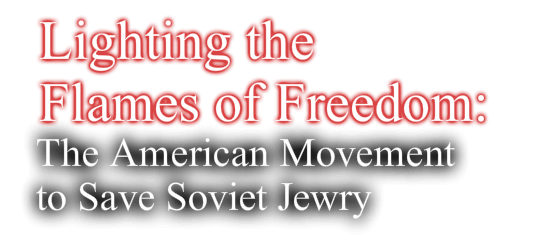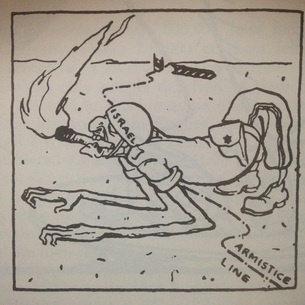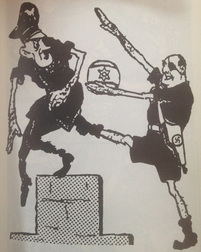Fanning the Flames: The Six Day War
|
|
“[The victory of the Six Day War] penetrated the Iron Curtain, forging an almost mystic link with Soviet Jews. Like a cry from a distant past, it told us that we were no longer powerless, and no longer alone. We now had a country that wanted us, and a people who stood behind us. But it was not just pride that Israel’s victory evoked among the Soviet Jews. It was also a near unheard-of willingness to take on the Kremlin.” - Natan Sharansky
|
|
"Until June 1967 Soviet Jews had illusions about co-existence with the regime, despite the fact that it wanted to destroy the Jews spiritually. But suddenly they realized that the Soviet government identifies itself with those who wish to destroy the Jewish state.... Russia spat on the Jewish people 'and then we knew that we would never be able to live under such regime'" - David Giladi, summarizing statements made by Soviet immigrants to Israel at the Twenty-eighth World Zionist Congress, Haaretz, 1972.
|
Personal interview with Alexander (Sasha) Luntz
|
|
"Position of invading aggressor." (From Krasnaya Zviedza, Moscow, June 15, 1967.)
|
"Dayan to Hitler: 'Move over'!" (From Kazakhstanskaya Pravda, Alma Ata, June 21, 1967). Moshe Dayan was a military leader during the Six Day War.
|
The Six Day War not only reminded Soviet Jews of their roots in Israel, but also gave pride and self awareness to an increasingly assimilationist American Jewish community - a self awareness vital to a movement based on collective identity. Additionally, the realization that there was a Jewish homeland that would accept them gave Soviet Jews a pull to accompany the push of antisemitism.
|
Images above from the book Let My People Go: Today's Documentary Story of Soviet Jewry's Struggle to be Free. Click to enlarge them.




